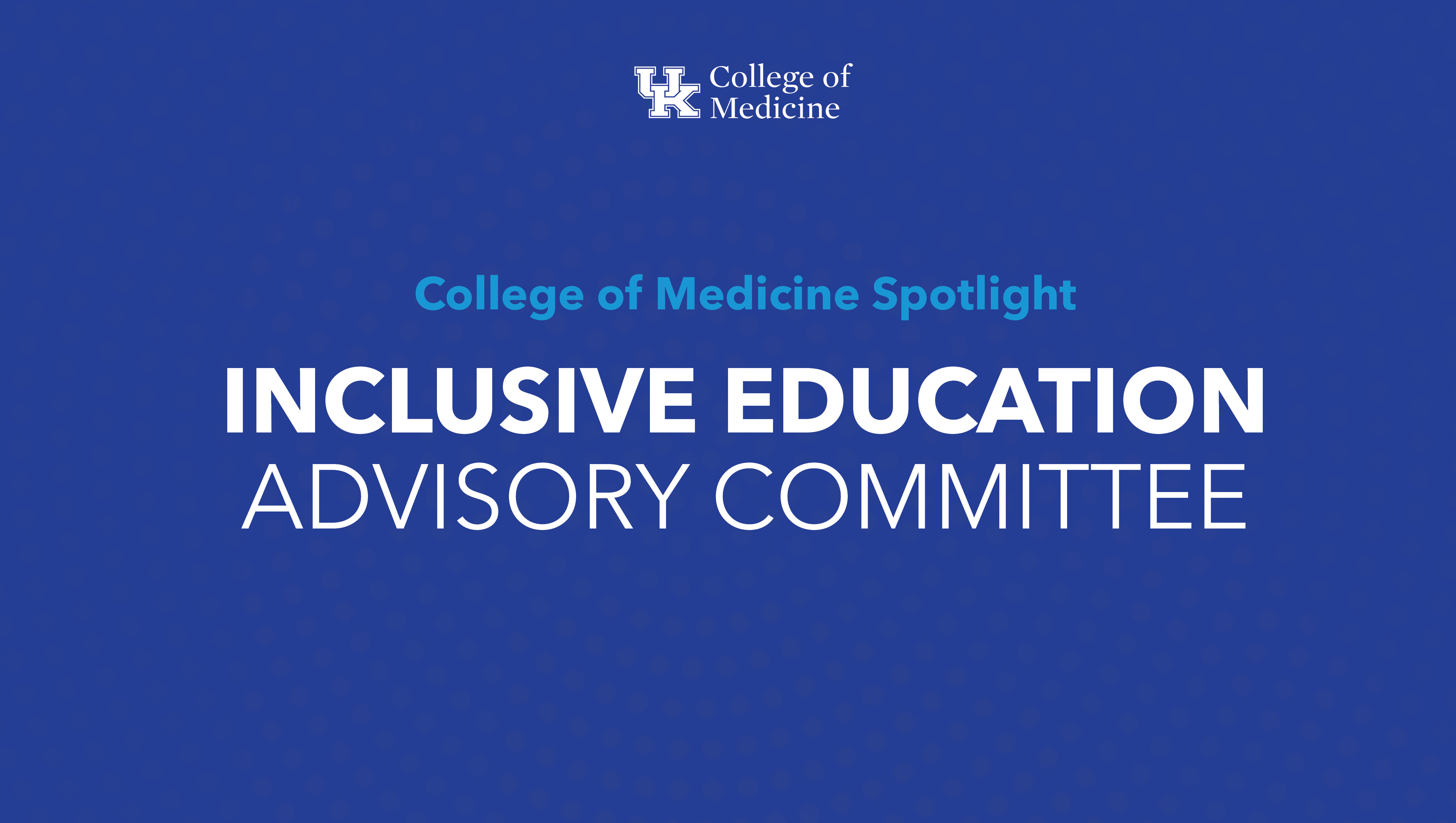‘Everybody’s Voice is Heard’: Committee Established to Engage College of Medicine on Diversity Issues
In 2020, high-profile murders of Black civilians by police garnered national attention, shining a light on the growing need for social change. Learners at the UK College of Medicine collaborated to compose a letter to their leadership, advocating for solutions to combat systemic racism. The College of Medicine administration engaged with learners to implement strategies and initiatives that would address their concerns.
It was imperative that all voices in the college would be heard throughout these discussions. The College of Medicine Office of Diversity, Equity, and Inclusion established the Inclusive Education Advisory Committee (IEAC), gathering clinical faculty, basic science faculty, staff, and learners of all levels to bring about effective change.
Carol Hustedde, PhD, associate professor of family and community medicine, has served as the chair of the IEAC. She has been active in the progress of College of Medicine Strategic Plan Diversity and Inclusion Pillar, and she currently serves as the diversity and inclusion ambassador for her department. Her interests are health inequities and caring for those who are limited in their access to equitable health care.
“One of the things I observed in my department about diversity is that everyone comes to the table with a different experience,” she said. “The Inclusive Education Advisory Committee gave me a chance to bring many voices to the table, and then collectively, we could explore how to best serve all learners in our college. This was a period of discovery for of us. We all knew that we wanted to do something with a committee such as this.” More recently, Dr. Hustedde has shared the leadership of the IEAC with Brian Hamilton, MEd, director of the Office of Diversity, Equity and Inclusion.
After the deaths of Breonna Taylor and George Floyd, the IEAC was a way for members of the college community to come together in emotionally challenging times and directly contribute to efforts to improve the college. It has developed into a forum for informative joint discussions on how to ensure inclusive excellence for all faculty, staff, and learners.
“I felt like it was an opportunity to be involved at a higher level,” fourth-year medical student Jonathan Davies said. “This wasn’t just a student-run thing. It was very collaborative. Everybody’s voice is heard.”
The IEAC led the creation of an inclusive education curriculum with the Office of Diversity, Equity, and Inclusion. The curriculum is a multi-part framework that explores issues related to diversity, equity, and inclusion by gathering speakers and collecting media content for a wide range of engagement opportunities.
Perhaps the most visible benefit has been the establishment of a structure that encourages input. Jodi Llanora, a third-year medical student, said that she and her classmates are given intentional time to speak up during Zoom meetings, and that has helped her feel more empowered to be part of the progress.
“I really wanted to get involved because I wanted to be a part of that change and help set up future classes and future communities within UK for success, to be able to promote that equitable and inclusive environment,” she said. “It’s nice to be able to have a bird’s eye view of everything.”
The committee has additional ideas in the works for future engagement opportunities, including speaker events, book clubs, and other informational resources. This collaborative work will help the college move forward, while ensuring everyone in the college has a say.
